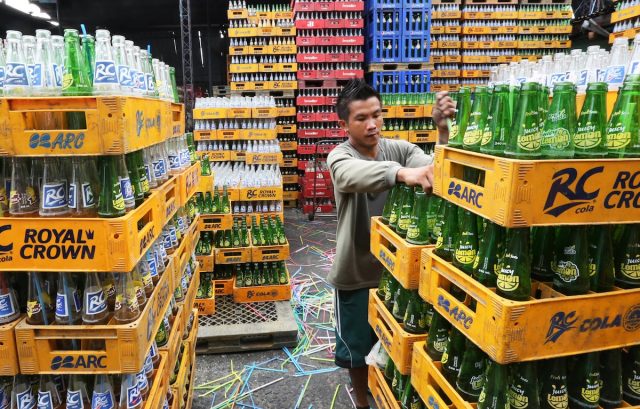
MANILA – The Department of Energy is talking to oil industry participants on better implementation and the nitty-gritty of the transition to the new tax reform package that took effect in the New Year, the Tax Reform for Acceleration and Inclusion (TRAIN). This, as the softdrinks market braced for higher prices soon as a result of the TRAIN-imposed tax on sugar-sweetened beverages.
This is in relation to an earlier DOE advisory saying price increases should only be applied to new stocks where excise taxes have been imposed under TRAIN.
The DOE and the Department of Finance had earlier warned the oil firms against imposing the new excise tax rates on stock they had bought in 2017.
The Energy department said they will conduct random checks on oil refineries, depots, and retail level outlets to check if the implementation of TRAIN is correct.
PRICIER SOFTDRINKS
Meanwhile, softdrinks sellers are also bracing for price increases as a result of TRAIN, which impposed a tax on sugar-sweetened beverages.
One of them, sari-sari store owner Nida Sibug, said they were advised by suppliers the prices “will go up in January because the President has signed the tax law.”
She said no exact figure was given, “except that the price will go up.”
One store that went ahead and raised its prices effective January 2 said it merely followed the “suggested retail price of the supplier.”
For a 1.75-liter bottle, the price suggested by their supplier is P65, up from P50.
For Mismo softdrinks, the new price is P13 from P12.
For an 8-ounce bottle, it’s P10 from P8.
One dealer, Remedios dela Cruz, said they were also advised of the price hike by their supplier but have not been told by how much and when. She added they will certainly reflect the new prices when they get their new stock.
15-40-DAY INVENTORY
The Department of Finance had earlier warned merchants against prematurely imposing new prices on items they had bought before the TRAIN law went into effect.
DOF Undersecretary Karl Kendrick Chua explained: “Excise taxes are levied at the port of importation or at the manufacturing level. What that means [is] existing stock from last year sold at retail level should not bear the price increase yet. It should be the new stock from 2018 that should be priced higher because of the excise and there are goods like oil products and sugar-sweetened beverages that are priced higher but they are using the old stock and that shouldn’t be the case.”
The DOF admitted it does not have full capability to check the inventory of all products that are set to be affected by new tax rates this year with the passage of TRAIN.
However, the Department of Energy is moving to link up with the private sector to ensure a smooth transition to the TRAIN regime so that all price increases are in accordance with law.
Chua explained that DOE, for instance, “mandates at least 15-40 days of inventory stocking so if an oil company increases its price much earlier, [that’s] something to look into.”
DOE Undersecretary Wimpy Fuentebella said, “we asked and the oil companies agreed, to submit their stock inventories at the cutoff date which is December 31 and start is January 1. In addition, they have also agreed to share the data on when they sold to their dealers/retailers the stocks on which they imposed the excise tax.”
The DOE enjoined oil companies to be transparent and issue timely notices when they will impose the new excise tax under the TRAIN law.
Per DOE estimates, the prices of oil products should remain the same for the first 15 days of January.
EO 134 requires a minimum inventory for LPG for 15 days, according to Assistant Secretary Bodie Pulido of the DOE’s oil industry management bureau.
“Based on the data in the possession of the DOE and based on the projections we made on the data made available to us, we believe that the existing old stocks would take at least 15 days before it is exhausted,” he added.
The DOF said the transition explains for the initial confusion in the pricing and the implementation of the TRAIN law.
Chua for his part said “birth pains and an adjustment period” were expected with any reform, but that they do not foresee any major problems ahead.
He insisted that the tax reform package is “pro-poor” because whatever additional revenue government collects will go back to people in terms of infrastructure and social services.









